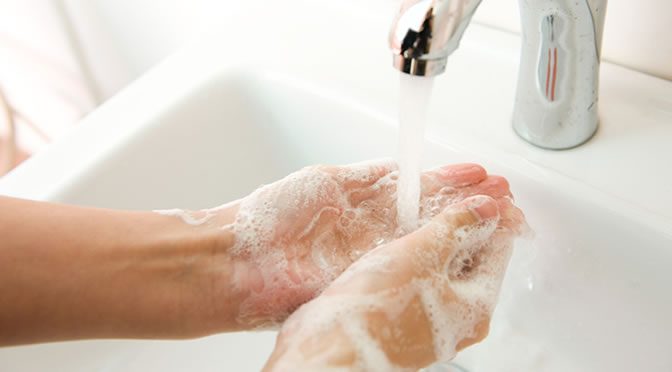The FDA has banned many chemicals in antibacterial soaps saying they could do more harm than good.
There is no science to back up the use of antibacterial washes, the FDA has announced.
The manufacturers have failed to prove that their active ingredients are safe and more effective than plain soap and water to kill germs.
The rule applies to over-the-counter antibacterial hand and body washes containing one or more of 19 active ingredients.
Triclosan and triclocarban are commonly used in different consumer washing products such as liquid soaps and bar soaps.
These are included in the list of specific active ingredients which are banned.
The other 17 newly banned chemicals are:
- Cloflucarban
- Fluorosalan
- Hexachlorophene
- Hexylresorcinol
- Iodine complex (ammonium ether sulfate and polyoxyethylene sorbitan monolaurate)
- Iodine complex (phosphate ester of alkylaryloxy polyethylene glycol)
- Nonylphenoxypoly (ethyleneoxy) ethanoliodine
- Poloxamer-iodine complex
- Povidone-iodine 5 to 10 percent
- Undecoylium chloride iodine complex
- Methylbenzethonium chloride
- Phenol (greater than 1.5 percent)
- Phenol (less than 1.5 percent)
- Secondary amyltricresols
- Sodium oxychlorosene
- Tribromsalan
- Triple dye
These harmful chemicals are found in many washing products such as bar soaps, foam, liquid, gel hand soaps and everyday body washes.
However, antibacterial products used in health care settings and consumer hand “sanitizers” or wipes are exempt and not included in the FDA rule.
The rule also doesn’t apply to benzethonium chloride, chloroxylenol and benzalkonium chloride as manufacturers are still trying to submit relevant documents to show the effectiveness and safety of these three ingredients.
Dr Janet Woodcock, director of the FDA’s Center for Drug Evaluation and Research (CDER), said:
“Consumers may think antibacterial washes are more effective at preventing the spread of germs, but we have no scientific evidence that they are any better than plain soap and water.
In fact, some data suggests that antibacterial ingredients may do more harm than good over the long-term.”
For example, studies on triclosan and triclocarban show that these antimicrobials can upset bacterial communities in the gut and increase ‘superbugs’ which are fully resistant bacteria to antimicrobials.
Moreover these agents can have hormonal effects and cause changes in estrogen, testosterone and thyroid hormones.
Some scientists are concerned that these chemicals might increase the risk of infertility and cancer.
Three years ago the FDA told manufacturers to provide evidence that their products are effective and safe for long term use: they were unable to provide it.
The manufactures have one year to obey the FDA’s rule and remove these 19 chemicals from their products.
In addition, the FDA advises consumers to use hand sensitizers containing a minimum of 60 percent alcohol when plain soap and water is not available.
The information is from an FDA consumer update published in September 2016.
Washing hands image from Shutterstock
